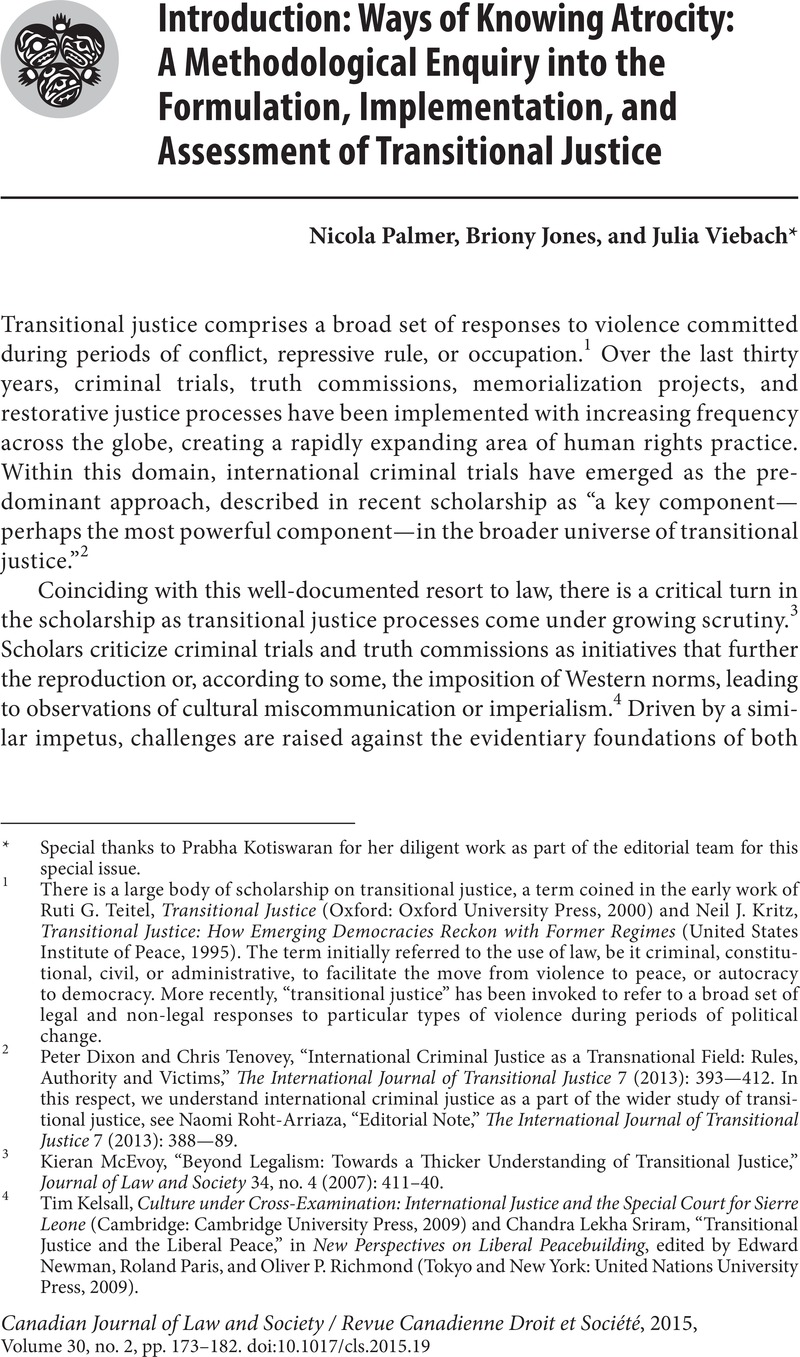Crossref Citations
This article has been cited by the following publications. This list is generated based on data provided by Crossref.
Bollaert, Cathy
2019.
Reconciliation and Building a Sustainable Peace.
p.
123.
Bollaert, Cathy
2019.
Reconciliation and Building a Sustainable Peace.
p.
47.
Bollaert, Cathy
2019.
Reconciliation and Building a Sustainable Peace.
p.
1.
Goetschel, Laurent
and
Hellmüller, Sara
2019.
Friedens- und Konfliktforschung in der Schweiz: ein facettenreiches Patchwork.
Zeitschrift für Friedens- und Konfliktforschung,
Vol. 8,
Issue. 1,
p.
79.
Bollaert, Cathy
2019.
Reconciliation and Building a Sustainable Peace.
p.
83.
Jones, Briony
2021.
The performance and persistence of transitional justice and its ways of knowing atrocity.
Cooperation and Conflict,
Vol. 56,
Issue. 2,
p.
163.
Bakiner, Onur
2021.
Truth Commission Impact on Policy, Courts, and Society.
Annual Review of Law and Social Science,
Vol. 17,
Issue. 1,
p.
73.
Thorne, Benjamin
2022.
The art of plurality: participation, voice, and plural memories of community peace.
Conflict, Security & Development,
Vol. 22,
Issue. 5,
p.
567.
Davidović, Maja
and
Turner, Catherine
2023.
What Counts as Transitional Justice Scholarship? Citational Recognition and Disciplinary Hierarchies in Theory and Practice.
International Studies Quarterly,
Vol. 67,
Issue. 4,
Lawther, Cheryl
2025.
Constructing Victimhood.



